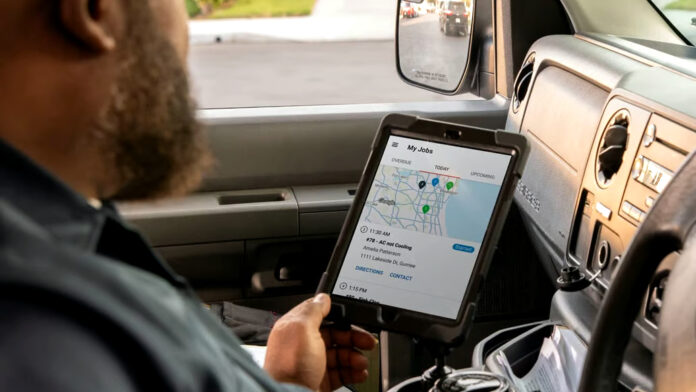An adjunct to our run-of-the-mill cellular reporting; a new report from Verizon Connect, the US carrier’s fleet tracking business, says there has been a five-percent increase in usage of GPS in automotive fleet tracking in Europe in 2024, compared with last year. More than three quarters (78 percent) of fleet traffic is now monitored with GPS technology for location tracking. Two thirds of companies (65 percent) claim GPS tracking has helped them to reduce costs.
The other big trend, it finds, is that more than half (53 percent) of fleets now “incorporate” electric vehicles (EVs) into their fleets, up 10 percent from 2023. These are from a new study, commissioned by Verizon Connect, conducted by ABI Research, which polled 1,318 fleet managers, executives, and “other mobile business professionals” in Europe. It linked “growing confidence” in fleet tracking to lower interest rates in Europe.
These have dropped to 2.5 percent in 2024 and are projected to reach 2.1 percent in 2025. As such, businesses are increasingly leveraging technology to address economic challenges, it suggests. The top industries utilising fleet management data are: construction, general freight, government, services, and passenger transportation. Three quarters (75 percent) of fleets says GPS tracking is “very” or “extremely” beneficial; two thirds (65%) pinpoint reduced fleet costs.
Businesses reported a 24 percent reduction in fuel consumption, a 19 percent decrease in accidents, the same (19 percent) in reduced labour costs, a 16 percent decrease in vehicle maintenance costs, and a 20 percent reduction in insurance costs. Businesses reported a positive ROI within 12 months of implementing GPS tracking; two thirds (67 percent) again cited productivity improvements (“resource utilisation and enhancing overall performance”).
Adoption of integrated video solutions and other smart technologies has also been well-received, with 75 percent citing improved driver safety, 70 percent citing protection from “false claims”, and 47 percent citing reduced insurance costs. Cost savings have been boosted by the shift to EVs, say respondents. CO₂ emissions have reduced 25 percent, alongside.
Peter Mitchell, general manager at Verizon Connect, said: “Technology is more than just an investment – it’s a critical driver of efficiency, safety, and sustainability. The findings from this year’s Fleet Technology Trends Report highlight a strong commitment across industries to embracing fleet technology. As fleets face rising costs and increased regulatory pressures, these technologies are proving to be indispensable in helping organisations optimise their operations, reduce expenses, and navigate the path toward a more sustainable future.”

